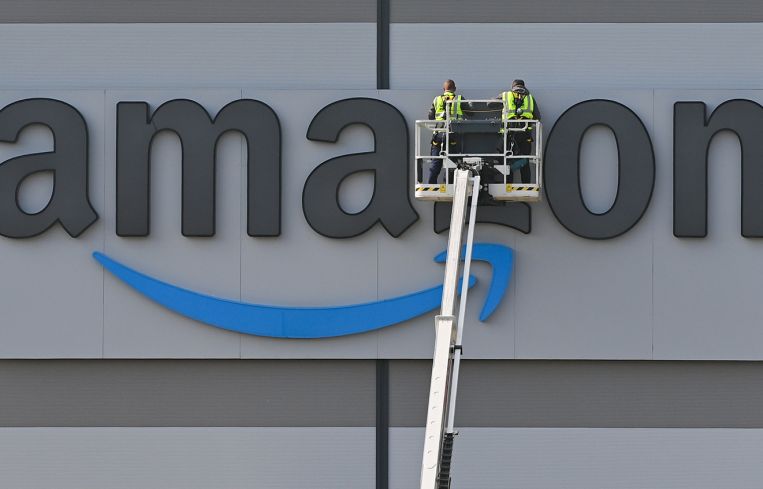Amazon Has a Lot of Problems Suddenly. It’ll Be OK.
The antitrust lawsuit could take years to resolve, and in the meantime the e-commerce hegemon will continue to grow
By Julia Echikson September 29, 2023 2:30 pm
reprints
When e-commerce surged during the early months of the pandemic, Amazon went on a shopping spree of its own. Case in point: It purchased a 76-acre site on the outskirts of Miami to build the company’s largest distribution center in South Florida.
Fast forward three years. With demand for online shopping faltering, the tech giant wants to keep the warehouse closed for another year, despite having spent $129 million to build it. Throughout its empire, Amazon is battling a post-COVID hangover. The giant e-tailer has slowed its voracious appetite for warehouses. It faces a landmark antitrust lawsuit.
But, like most hangovers, Amazon may soon recover. The government’s case, filed this week, is far from a sure bet and will take years to resolve, experts say. Meanwhile, Amazon remains the country’s largest online retailer and is poised to continue growing. It is pivoting its real estate strategy, moving away from leasing, and instead increasing its share of company-owned properties, such as the one in Miami-Dade County.
When most physical stores shut down during the first months of the pandemic, consumers flocked to Amazon. Their purchases helped nearly double the company’s annual global revenue from $245 billion in 2019 to $434 billion by 2022. To keep up, the tech giant doubled the footprint of its fulfillment centers globally in two short years.
Still, the gargantuan expansion was short-lived. Once vaccinated, consumers returned to in-person shopping. Saddled with too much space, Amazon either closed, canceled or delayed opening more than 90 warehouses nationwide last year, according to logistics consultant MWPVL International. The company is making similar cuts this year.
While Amazon’s overexpansion is sure to be costly and a headache to tackle, it wasn’t alone. Other pandemic darlings, such as Peloton, have retrenched. “Amazon is, of course, a behemoth, so it expanded more — but it was in line with market dynamics,” said Ermengarde Jabir, Moody’s Analytics’ senior economist, who specializes in industrial real estate. The pullback “is all part of the sector making its way to a new equilibrium.”
Amazon’s recent cuts don’t seem too deep. While it has completely renounced some properties by breaking leases, the Seattle-based conglomerate has chosen to make many available as subleases, and then often only as short-term rentals. The sublease portfolio amounts to 10 million square feet — in other words, only about 5 percent of the square footage added during the pandemic, Bloomberg reported.
The tech titan, which has long relied on leasing, has been growing the number of company-owned warehouses, too. From 2020 to 2022, it tripled the amount of industrial space it owns nationwide, spending at least $2.3 billion to buy more than 5,000 acres, according to company filings and real estate research firm CoStar. The move suggests the company is recalibrating parts of its real estate strategy to retain greater control of its warehouses. In Miami-Dade, for example, Amazon representatives told county officials that the company does not want to sell the 1.3 million-square-foot warehouse. Rather, it plans to open it next year.
By retaining swaths of its industrial portfolio, Amazon is setting itself up well for the future, according to Jabir. E-commerce is expected to account for 20 percent of all shopping by the end of the decade, up from 15 percent this year. “Although it doesn’t seem like it, Amazon is very much planning for the future,” the analyst said.
On the legal front, the implications of the blockbuster antitrust lawsuit against Amazon are far from clear.
The Federal Trade Commission and 17 states have sued the company, alleging it abused its position in the marketplace by inflating the prices of consumer goods and overcharging sellers on its own platform. At the heart of the 172-page complaint, regulators accuse Amazon of pressuring sellers to use its fulfillment and delivery services inside its warehouses to become eligible for its popular Prime subscription.
If Amazon is forced to change that practice and allow sellers to use a competitor’s warehouse, the company could substantially reduce its industrial footprint. But the case will take years to resolve. In the meantime, Amazon can operate as usual since the government has not indicated it will seek an injunction against its business practices.
The company has denied regulators’ accusations and plans to fight the charges.
“We’re proud of the ways we’ve helped to spur low prices, innovation, and competition across retail, and we intend to keep doing that for years to come. We fundamentally disagree with the FTC’s allegations,” wrote David Zapolsky, Amazon’s senior vice president of global public policy and its general counsel. “We will contest this lawsuit, and we will also continue inventing to put our customers — both consumers and the businesses that sell in our store — first.”
The government’s arguments are also not a sure bet. Antitrust laws generally focus on harm done to the consumer, less so to other businesses, said Michael Carrier, a law professor at Rutgers University. Even if the government comes out victorious, it’s unclear whether any legally mandated changes would hamper Amazon’s dominance. The European Commission has forced Amazon to alter its business practices, and yet Amazon remains a major e-commerce player across the continent.
“An adverse ruling would be a really bad day for Amazon, but I don’t think it would be a death knell,” said Scott Wagner, a partner at Bilzin Sumberg’s antitrust practice. “Customers like using Amazon.”
In a sign of the company’s resilience, it nearly doubled analysts’ estimates this past quarter, with revenue rising by 11 percent to $134.2 billion. The gains were, in part, powered by Amazon’s core business: e-commerce.
Julia Echikson can be reached at jechikson@commercialobserver.com.



